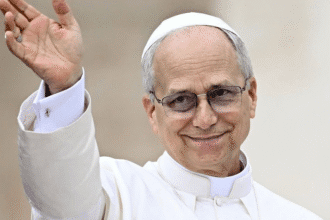Israel is preparing for a general strike following a night of protests over what many see as the government’s failure to secure the release of hostages still held by Palestinian freedom fighters in Gaza. The situation escalated after the Israel Defense Forces (IDF) announced that the bodies of six hostages were found in an underground tunnel in the Rafah area of southern Gaza on Saturday, sparking widespread outrage and anger across the nation.
- Why Are Israelis Protesting Against Their Government?
- How Has the Call for a General Strike Intensified Tensions?
- What Sparked This Wave of Protests?
- Are These Protests Impacting Humanitarian Efforts in Gaza?
- How Has the Hostage Crisis Affected Israeli Politics and Society?
- What’s Next for Israel and the Hostage Crisis?
Why Are Israelis Protesting Against Their Government?
On Sunday, tens of thousands of Israelis rallied across the country, accusing Prime Minister Benjamin Netanyahu and his government of not doing enough to negotiate the release of hostages taken during the October 7th assault. Demonstrators filled the streets of major cities like Tel Aviv and Jerusalem, calling out Netanyahu’s inaction. Many protesters wore masks depicting Netanyahu, symbolizing their opposition to his leadership and chanting, “Alive, alive, we want them alive,” demanding the safe return of the remaining captives. Signs read, “You are the head. You are to blame,” laying responsibility squarely at Netanyahu’s feet.
How Has the Call for a General Strike Intensified Tensions?
The protests have now evolved into a call for a one-day general strike, set for Monday, led by Israel’s largest labor union, Histadrut. Union leader Arnon Bar-David accused the government of delivering “body bags instead of a deal,” highlighting the frustration felt by many Israelis over the government’s perceived failure to secure the hostages’ freedom. The call for a strike marks a significant escalation in the public’s response to the crisis, reflecting growing anger that the hostage situation remains unresolved.
Trump’s Iran Dilemma: Balancing America First with Support for Israel
However, the government has reacted furiously to the union’s move. Far-right Finance Minister Bezalel Smotrich criticized Histadrut, accusing it of playing into the hands of Palestinian resistance groups. Despite the government’s objections, many sectors in Israel remain undecided on whether they will participate in the strike, although several cities and municipalities have announced they will not join. Still, the strike threat signals deep-seated discontent with the government, which shows no signs of diminishing soon.
What Sparked This Wave of Protests?
The anger reached a boiling point after the bodies of the six hostages—identified as Carmel Gat, Eden Yerushalmi, Hersh Goldberg-Polin, Alexander Lobanov, Almog Sarusi, and Master Sgt. Ori Danino—were recovered. According to the IDF, these individuals were killed shortly before Israeli forces reached them, prompting immediate backlash and accusations that the government had failed to act swiftly enough to save them. The discovery of the bodies ignited Sunday’s demonstrations, which saw crowds break through police lines and block a major highway in Tel Aviv.
Are These Protests Impacting Humanitarian Efforts in Gaza?
The protests have overshadowed humanitarian activities in Gaza, where a UN-led campaign to vaccinate 640,000 children against polio has begun. The campaign relies on local pauses in fighting between Israeli forces and Palestinian resistance fighters, with the first three-day pause starting on Sunday. Despite the ongoing conflict, the first day of vaccinations was reportedly successful.
How Has the Hostage Crisis Affected Israeli Politics and Society?
The demonstrations have revealed a deeply divided Israeli society, torn between a desire for security and growing frustration with the government’s handling of the hostage crisis. Many Israelis are questioning whether Netanyahu’s administration is doing enough to secure the release of the remaining 97 hostages, 33 of whom are presumed dead. The calls for a general strike underscore the mounting pressure on the government to reach an agreement that could bring an end to the hostage ordeal.
While the government has responded to Palestinian actions with military force, launching a sustained air and ground offensive in Gaza, this strategy has resulted in more than 40,738 deaths, according to Gaza’s health ministry. As protests continue and the potential for a nationwide strike looms, Israel finds itself at a critical crossroads, facing both internal dissent and an ongoing humanitarian crisis.
What’s Next for Israel and the Hostage Crisis?
With public discontent growing and calls for a general strike intensifying, Israel faces increasing pressure to find a resolution to the hostage situation. The question remains whether Netanyahu’s government will yield to public demand for a negotiated agreement or continue its current military strategy. Meanwhile, families of the hostages and many others in Israel await answers and action from a government under siege by its own citizens’ frustrations.








